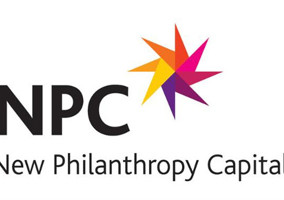With social and work routines severely disrupted over the last year, the pandemic has highlighted the need for companies to engage meaningfully with their employees on issues around mental health and wellbeing. But for one investment management company, this revelation is nothing new.
“We believe that investment markets and the returns you expect to achieve will only be as healthy as the communities they support,” says Elizabeth Sheldon, chief operating officer at CCLA. “Therefore it was important to us that we looked into the mental health practices of our investees. We believe very strongly that the human and economic costs for mental health can be an obstacle to success.”
With this in mind, in February 2019 CCLA used the recommendations set out by a government-commissioned report, as well as input from an expert advisory committee co-chaired by Sheldon, to create a set of five, workable best practice measures. A select group of 11 companies was chosen to review the criteria and assess their own progress in these areas. The measures were: having a mental health at work plan; promoting mental health awareness among employees; integrating mental health safeguarding into job design and workplace conditions; training managers; and monitoring and reporting on employee mental health and wellbeing.
The survey found that while some of the businesses had gone above and beyond expected standards, others had made little or no progress.
Moral and economic drivers
For CCLA, the economic case for mental health to be pushed up the agenda when considering investments is clear. “There are obvious financial benefits to a big company looking after its workforce and it makes sound financial sense for an investor to consider mental health when they are looking at companies in which to invest,” says Sheldon. “We have always thought that the economic cost of ignoring this is too high to dismiss.”
This claim is backed up by recent research. According to an ISO study, mental ill-health was the highest cause of long-term absence from work in 2018, accounting for 57% of lost working days. Deloitte estimates that absenteeism, combined with lost productivity and staff turnover, results in a total cost to employers of up to £45bn a year.
There is also a strong moral case, argues Sheldon. “Companies have a moral obligation to maintain the mental health of their workforce. As investors, we can help to drive the kind of positive change needed within a company.”
The Covid-19 pandemic gave even more impetus to CCLA’s programme. By April 2020, the investment manager had built a coalition of investors, with a total of £2.2tn in assets under management, and wrote on their behalf to the CEO of every FTSE 100 company, whose combined workforce numbers around 4.7 million. The letter urged them to take steps to protect the mental health of their employees during the pandemic and demonstrate what they were doing.
“By the end of 2020, we had around 74 responses,” says Sheldon. “A lot of these companies were doing great things, but the efforts were disjointed and sometimes senior members of staff were less engaged than we felt they ought to be. This is where, as investors, we feel we can be a genuine catalyst for change.”
Mental health benchmark
CCLA has a history of affecting real-world change, being at the forefront of efforts to tackle modern slavery for example. By joining forces with Chronos Sustainability Ltd with backing from Mind chief executive Paul Farmer and Lord Dennis Stevenson, CCLA has set about developing a Corporate Mental Health Benchmark – a global framework for assessing corporate mental health practices in a relevant, systematic and credible manner.
The first stage of this was a six-week consultation which ran during the early part of this year. “The findings from the consultation will be used to inform the assessment criteria,” explains Sheldon. “We will test those with some key stakeholders and we are hoping to pilot the benchmark to 20-30 companies shortly.”
The intention is to create a quantitative tool that can be used to help shape analysis and provide some more context when it comes to mental health, says Sheldon. “We see the CCLA Corporate Mental Health Benchmark as becoming a tool for investors to assess one particular aspect of ESG. It is about getting the data and encouraging companies to follow best practice, while giving them a framework to do so.”
Launching in 2022, Sheldon hopes the benchmark will provide a “true picture for investors that realise the value of employee mental health as a vital aspect of a company’s success”.
What we do
CCLA is a specialist investment manager dedicated to serving charities, faith organisations and the public sector. Tackling the issues of our day head-on as responsible investors is the only way to deliver strong, sustainable returns to our clients. Our pioneering approach to responsible investment originates from our heritage as the investment advocate for not-for-profit organisations.
CCLA Investment Management Limited is authorised and regulated by the Financial Conduct Authority.
Fast facts
- 60+ years of ESG investing*
- No. 1 manager of UK charities**
- £12bn+ in assets under management*
- First investor initiative to protect mental health at corporates*
- £7tn+ of assets supporting CCLA initiatives*
- Founder member of four global climate initiatives*
- A+ rating by PRI*** *CCLA: Internal as at 1 March 2021
*CCLA: Internal as at 1 March 2021
**Charity Finance Fund Management Survey November 2020
***PRI Assessment Report 2020
Elizabeth Sheldon is chief operating officer at CCLA Investment Management Ltd
Related articles












